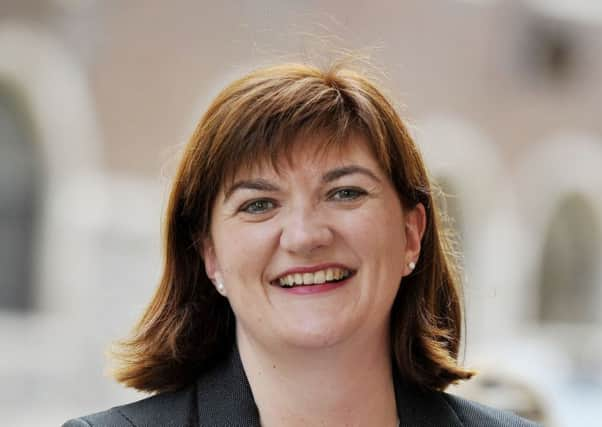Yorkshire businesses with no diversity at the top ‘won’t be around’ in 20 years


His stern warning that graduates should not work for companies that don’t have a fair gender balance at the top comes as he delivered his final report into improving the gender balance across the country’s biggest companies.
After accomplishing 25% representation on FTSE 100 companies in five years, he now wants FTSE 350 companies to have 33% female boards by 2020, which would be 350 more women in top positions.
Advertisement
Hide AdAdvertisement
Hide AdDuring his final report launch infront of some of the country’s most powerful women in business at KPMG head office in Canary Wharf, London, he said: “If you want a job as head of human resources, you better understand diversity, you better be the driver of it in the company and if your CEO isn’t implementing it in the way that you want it, move companies.
“My message to the graduates is, have a look at the top of the company and if you don’t see diversity, and if you don’t see the right measures and action plans - do not work for that company, because it won’t be around in 20 years.”
He added: “I saw so much talent in the North and it doesn’t matter where you’re based in the UK you absolutely have to get the issue of diversity, it doesn’t matter whether you’re a private company or public country, or whether you employ 10 people or 100,000, it’s hugely important to get that diversity of thought, thinking and background.”
Secretary of State for Education and Minister for Women and Equalities, Nicky Morgan, has today welcomed Lord Davies final report and the Government will also seek a new review into getting more women appointed to at the ‘executive level’ - the rung below board membership.
Advertisement
Hide AdAdvertisement
Hide AdIt’s been reported previously in the Yorkshire Post how Bradford-based grocer Morrisons, Saltaire-based set-top box maker Pace and Bradford-based credit lender Provident Financial have embraced gender diversity, comfortably outstripping the 25 per cent female target Lord Davies set when he embarked on his review in 2011. In that year, women made up 12.5% of boards.
However eight Yorkshire FTSE 350 companies have failed to get close to it.
Earlier this year, FTSE 100 York-based housebuilder Persimmon had a board which was just 11.1 per cent female, however the appointment of another woman over the summer, representation is now at 20%.
However there are significant hurdles in terms of getting women into the businesses world in the first place, which Lord Davies wants to tackle.
Advertisement
Hide AdAdvertisement
Hide AdHe said the biggest thing holding back Yorkshire women and those in rural communities from even getting their foot in the door in the world of business is poor digital connectivity, something he will personally be lobbying the Government about.
He said: “The message to the Government is you have to fix broadband and make sure that it is there right across the country. If you’re in a rural area and broadband is not good enough quality that puts you at a huge disadvantage. So we’ve got to fix broadband across the UK, and we’ve got to put in incentive programmes through the local approach to make sure that we are encouraging new businesses.
“I’m really pushing it to Government to say that if we look at the strategic priority for the nation over the next few years we’ve absolutely got to have broadband everywhere.”
The Government’s Equalities Minister, Caroline Dinenage, said ensuring rural women can make their mark in businesses is just as crucial as trying to promote women in FTSE 350 companies, as they are the ‘fuel that drives the economy’.
Advertisement
Hide AdAdvertisement
Hide AdShe said: “We have introduced some really good initiatives in rural areas. There are funds available for women who want to start businesses to access things like broadband and training and transport.
“Today we’re talking about big businesses, which is really important, but a lot women like me - I started my own businesses when I was 19 - and those who have children may decide to start up some sort of small business or decide that entrepreneurship is for them.
“They need to be supported as well. They are the fuel that drives the economy and they are really important for local employement particularly in rural areas.”